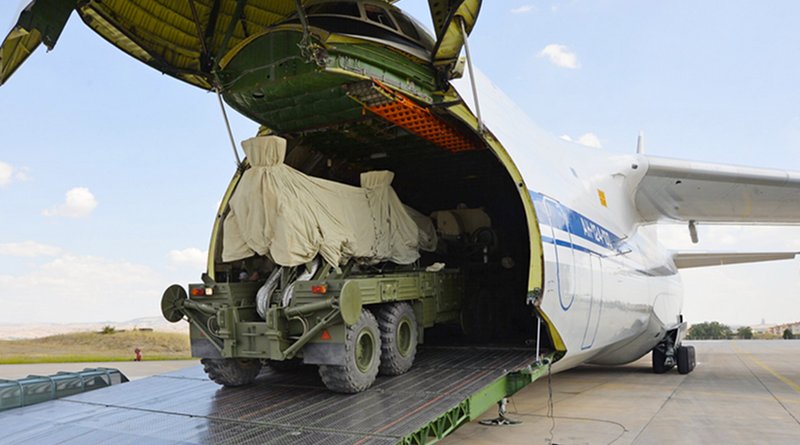US Sanctions On Turkey Loom Amid Stalemate On S-400s
By Arab News
By Menekse Tokyay
Following US President Donald Trump’s meeting with his Turkish counterpart Recep Tayyip Erdogan in Washington on Nov. 13, each party was quick to claim success. But the threat of sanctions is still looming if Turkey fails to abandon its plans concerning the Russian S-400 air defense system.
Turkey began receiving its first batch of S-400s in July. In response to this move, the US has quickly banned sales of F-35s to Turkey and removed the country from the F-35 fifth-generation joint strike fighter program.
The US concern was that the system might be used by Russia to secretly acquire confidential details about the jet and is also incompatible with the NATO system.
The US secretary of state and Turkish minister of foreign affairs as well as national security advisers are working on a solution to the dispute.
However, last week White House National Security Adviser Robert O’Brien made it clear that the threat of sanctions still exists if no common ground is found.
Gonul Tol, founding director of Middle East Institute’s Center for Turkish Studies and adjunct professor at George Washington University, thinks there are not that many face-saving ways of walking out of the S-400 deal for Erdogan.
“One option that is being voiced is for Ankara to announce it has activated the system while in fact the system remains unactivated. Russian response to this option carries a risk for Ankara,” she told Arab News.
The US concern is that the system might be used by Russia to secretly acquire confidential details about the jet and is also incompatible with the NATO system.
But Tol also believes that if Turkey fails to take steps to address Western concerns over the S-400, Congress might push the administration further to implement Countering America’s Adversaries Through Sanctions Act (CAATSA) on Turkey.
Last month, the US House of Representatives adopted a sanctions package to penalize Ankara over its Syria operation, and key members of the Senate, including Republican Senator Lindsey Graham, have pledged to “come and hit Turkey hard if they don’t get out of Syria and reset the table.”
Karol Wasilewski, an analyst at the Warsaw-based Polish Institute of International Affairs, believes that the solution to this conundrum might be Turkey and US agreeing to keep S-400 boxed in northern Cyprus — a compromise that would satisfy the US and save face for Erdogan since he could easily sell it to the electorate.
“But I think it is extremely unlikely,” he said. The statements of Erdogan, on his way back from Washington to Ankara, were telling, as he announced Turkey will not completely give up on S-400 to acquire US Patriots. Accordingly, Erdogan believes “the offers to buy just Patriots and completely put Russian S-400s aside is an interference to Turkey’s sovereignty rights.”
Considering it a “matter of national sovereignty,” Turkey justifies its decision to buy the Russian system just because the US had declined to provide Ankara with the alternative Patriot missile defense system.
According to Wasilewski, the US may compromise on price or the technology transfer, but most probably not to extent Ankara wants as it is abnormal to fully share such advanced technology even with the closest allies and Turkey is not its close ally for now.
“I think Turkish decision-makers, for some reason, are quite sure that Trump won’t sanction Turkey and that they need to wait for the new Congress,” said Wasilewski.

